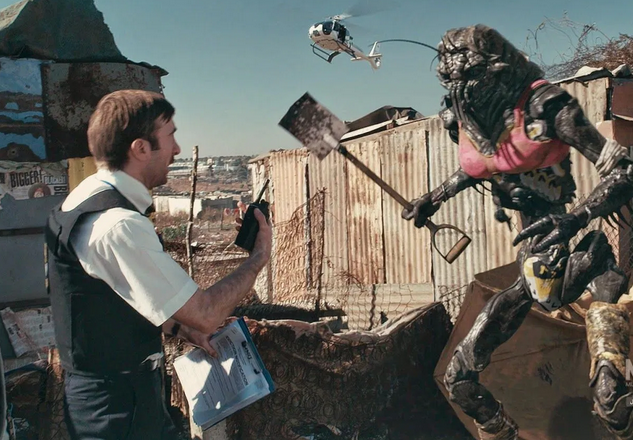Drugged-up crayfish, double-duty zinc, a Captain Obvious trifecta, and more
17 Jun 2021
Posted by Andrew Kantor
Honey, move out to the country
If you want a fat baby, expose yourself to air pollution while you’re pregnant. The downside is that there’s a much better chance your cute fat baby will grow up to be … well, maybe still cute, but with issues from obesity.
According to researchers at Colorado University…
Women exposed to higher levels of air pollution during pregnancy have babies who grow unusually fast in the first months after birth, putting on excess fat that puts them at risk of obesity and related diseases later in life.
Jen Shannon shout-out!
The GPhA board member — and owner of Lily’s Pharmacy in Johns Creek — is the co-author of an op-ed in the Savannah Morning News, “Those who skip second dose of COVID-19 vaccine put themselves at increased risk”.
If you are hesitant about vaccine efficacy or side effects, have questions about the second dose, or do not typically get vaccines at all, call your pharmacist or provider to discuss your concerns. They can help you understand the data and demonstrate how the benefits of full vaccination far outweigh any potential risks or exposure to the virus and its variants.
Zinc: the Joe Manchin of kidney stones
It both helps them form and prevents them from forming.
“What we see with zinc is something we haven’t seen before. It does slow down calcium oxalate crystal growth and at the same time it changes the surface of the crystals, causing defects in the form of intergrowths. These abnormalities create centers for new crystals to nucleate and grow.”
Caveat: It comes from the American Chemical Society, so take it with a grain of calcium chloride.
ACA quickie
Obamacare sign-ups are beginning to slow; since Joe Biden re-opened them in mid-February, about 1.2 million Americans have enrolled.
Hyperbole watch: Not a dry eye in the house
There was the Golden Age of Greece, of radio, of comics — could we be entering the Golden Age of … dry-eye treatment? One ophthalmologist thinks so.
Until recently, he says, the people who treated dry-eye disease (DED) were “the red-haired stepchildren of ophthalmology, alone in a corner of the professional village telling anyone who would listen that DED was real and needed to be treated.”
But now that’s changing:
We are about to enter an “age of abundance,” something that was inconceivable as recently as 2008. The red-haired stepchildren are now, in many ways, the coolest kids on the block. The force is strong within us, my fellow Jedi Knights.
You picked the right day to quit inhaling hand sanitizer
The FDA has issued a warning about it.
Organ transplants and Covid: A new hope
Imagine you’re an organ transplant recipient who got both shots of a Covid-19 vaccine, but you still aren’t getting protection — anti-rejection drugs are messing with your immune system. What do you do?
Why not go get yourself a third dose and see what happens? That’s exactly what some have done, and a Johns Hopkins researcher found out about it. He and colleagues were surprised — and are now cautiously optimistic.
Among 24 organ transplant patients who had no antibodies after two doses, eight people generated protective antibodies after they sought out a third on their own. Six people who had few antibodies against the coronavirus after two doses all wound up with high levels after a third shot
This isn’t a study, this is just anecdotal evidence (the patients got different vaccines, for one). But the antibodies are real, and “this gives hope, which is critical right now.”
Putting the cray-cray in crayfish
Crayfish are taking antidepressants — the ones flushed down toilets or thrown into landfills — and it’s making them, well, different. So found University of Florida researchers.
The medicate crayfish “behaved more ‘boldly,’ emerging from hiding more quickly and spending more time searching for food.”
Which you might think is a good thing … if you’re a predator.

Researchers speak with one of the crayfish affected by pharmaceuticals in the water (courtesy MNU)
Captain Obvious wants his Cap’n Crunch
“Adults who skip morning meal miss out on nutrients, study finds” —from an Ohio State University
…and another beer
“Young adults’ alcohol use increases when casually dating” —from Washington State University
…and a chance to work it off
“Young adults who improve their poor cardiovascular health may reduce future CVD risk” —from Seoul’s Yonsei University College of Medicine.
The Long Read: Yes, Sherlock
Wastewater epidemiology — aka ‘sewage sleuthing’ — has made a major impact in slowing the spread of Covid-19.
“We were trying to find where the opioids were within certain areas of our city,” said Tempe City Councilmember Joel Navarro. [Arizona State University environmental engineering professor Rolf] Halden told them he could provide a neighborhood-by-neighborhood look into the Tempe population’s drug use by panning for chemical remnants left behind in the city’s sewage. After all, everybody poops.


